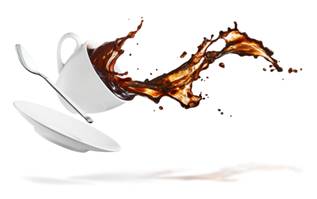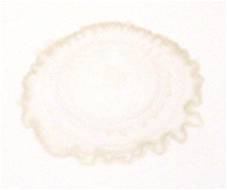It’s only natural that removing stains from marble becomes a priority when it’s the stain that begins to draw your attention rather than the beauty of the marble.
 However, there is not one method that can be applied to all marble stains. A rust stain, for example, will need to be treated differently than a water stain — a pet urine stain will need to be treated differently than an oil-based stain.
However, there is not one method that can be applied to all marble stains. A rust stain, for example, will need to be treated differently than a water stain — a pet urine stain will need to be treated differently than an oil-based stain.
The chemical make-up of the stain will determine the type of solution it takes to remove it or at least minimize it in appearance. Some stains, if left untreated for too long, may mean that your marble surface needs professional refinishing to get back its like new luster. Just remember that the longer it sits, the harder it will be to remove.
What’s the Difference between Stain and Etch?
One of the first things to note in marble stain removal is understanding the difference between a stain and an “etch“. Because marble is porous, a stain will typically be absorbed beyond the marble’s top surface and sit within the stone’s pores or voids.
 An etch, on the other hand, is a degrading of the surface finish by an acidic-type reaction. Stain removal steps will not work on an “etch” and typically an “etch” will require buffing or polishing the surface to recapture a high polished look. Similarly, steps for removing an etch will not work for removing marble stains.
An etch, on the other hand, is a degrading of the surface finish by an acidic-type reaction. Stain removal steps will not work on an “etch” and typically an “etch” will require buffing or polishing the surface to recapture a high polished look. Similarly, steps for removing an etch will not work for removing marble stains.
Water rings, for example, are usually etches and not stains because the mineral deposits in the water eat away at the surface finish of the stone — especially if left unattended for any period of time.
Some of the types of compounds that will ETCH your marble’s surface are as follow and care needs to be exercised to remove these as soon as first noticed:
- Acidic juices like lemon, lime and orange
- Cleaning products that contain harsh chemicals
- Tomato-based including ketchup and spaghetti sauce
- Vinegar
- Cola-type like Coke, Pepsi, Dr. Pepper
Help for Removing Stains from the Top 3 Marble Offenders
There are at least 10 common types of stains that will affect the appearance of your marble’s surface. You can see the prime offenders HERE. Below are the Top 3 with tips on the best way to remove these stain types from your marble surface. This does not address removing etches. Solutions for etching can be found in our post on how to polish marble HERE.
SOAP SCUM
Probably one of the most unavoidable surface stains is soap scum buildup. You can squeegee shower walls to minimize soap scum buildup, however, it needs periodic cleaning because a squeegee will not remove soap scum from within the marble’s voids and pores.
Simply add 1/2 Cup of AMMONIA to 1 Gallon of water and wipe shower walls or other surfaces with soap scum clean. Caution should be exercised when using ammonia because over use of ammonia will DULL the marble’s surface. Do not assume that adding a stronger ammonia solution to water will make a better cleaner.
OIL-BASED STAINS
Most people are familiar with the look of oil stains on a garage floor or driveway. It’s fairly easy for oil-based products like motor oil, cooking oil, cosmetics or paints to leach their way beyond the surface of a marble countertop or floor. An oil stain is recognizable because it will darken the stone’s surface.
The solution for an oil-based stain is to mix something that will draw out the oil from the marble. This is called a POULTICE. How to make a poultice and how to use one for removing stains from marble can be found HERE.
ORGANIC STAINS
Classified as those found in natural materials, organic stains can be everything from pet urine to coffee, fruit, foods or in outdoor environments, bird droppings, leaves or tree bark.
Organic stains are usually pink to brown in color and can be removed, based on severity, with a hydrogen-peroxide and ammonia solution. It’s important to use a 12 percent (12%) concentration of hydrogen peroxide, like that sold for bleaching hair, not the 3 percent (3%) solution distributed for household or antiseptic use.
Mix the UNDILUTED hydrogen-peroxide with three (3) drops of ammonia for spot cleaning.
Organic stains on outdoor marble surfaces will usually go away on their own thanks to Mother Nature. The sun and rain will bleach and wash any these types of outdoor stains naturally.




